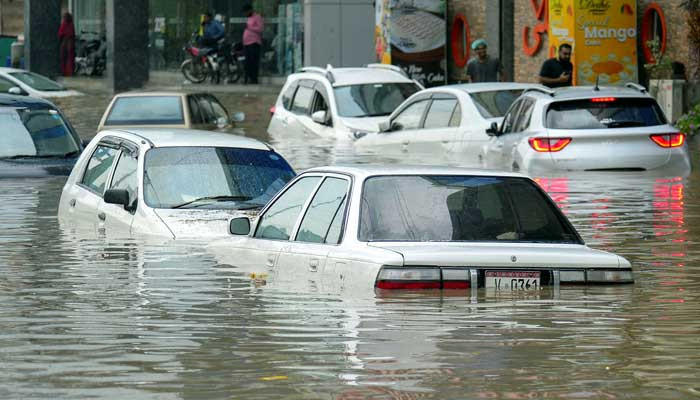Karachi Commuters Face Mental Health Challenges Due to Traffic Jams After Rains
Following weeks of heavy rainfall that damaged roads and caused widespread water accumulation, the daily commute in Karachi has become increasingly difficult. Residents are experiencing extended traffic delays, which are negatively affecting their overall well-being.
Many individuals are finding that their travel times have significantly increased. Saad Alam Angaria, a 28-year-old researcher, mentioned that his commute home has increased to approximately 90 minutes, compared to the previous 45 minutes before the monsoon season. He expressed feeling utterly exhausted upon arriving home, stating that the commute now feels as demanding as a full day’s work. This frustration has reduced his desire to engage in social activities.
Ayesha Izhar, a communications professional, noted that her 30-minute commute has extended to 45 minutes due to the deteriorated road conditions and persistent flooding. She shared that she no longer feels invigorated upon reaching the workplace. Instead, she feels the need to rest because of the discomfort and contamination. The prolonged periods spent sitting in crowded vans have also led to back discomfort.
Tooba Khan, a 27-year-old marketing expert, described the situation as highly challenging. She said that what used to be a short 15-minute trip now takes almost twice as long. The increased travel time has caused her to feel anxious. She also expressed concerns about the security situation in the city, indicating a general sense of unease. She believes that there are no longer any practical shortcuts or faster routes available in Karachi.
Psychiatrist Dr. Monica Vaswani cautioned that such ongoing tension could lead to lasting mental health problems.
Dr. Vaswani clarified that people repeatedly caught in traffic caused by rainfall often develop a type of climate-related anxiety. This condition involves a concern about future occurrences and can progress into broader anxiety disorders.
She advised that even after treatment, patients might experience a resurgence of symptoms during rainy periods because the underlying psychological stress lingers. She emphasized the need for early intervention through methods such as behavioral therapy and relaxation exercises to prevent the condition from worsening.
Citizens report that the continuous stress from traffic has left them feeling tired, easily irritated, and with diminished capacity to spend quality time with their families.
With inadequate infrastructure and unexpected disruptions contributing to daily turmoil, numerous individuals are concerned that the congested roads of Karachi are gradually changing the city’s emotional and mental environment.



Comments (0)
No comments yet. Be the first to comment!
Leave a Comment